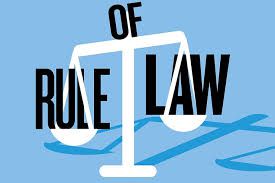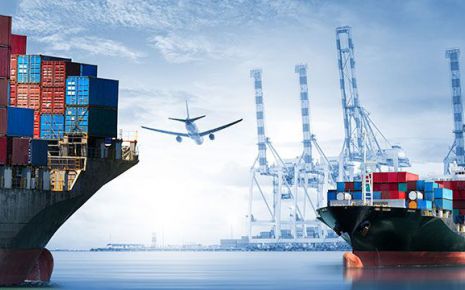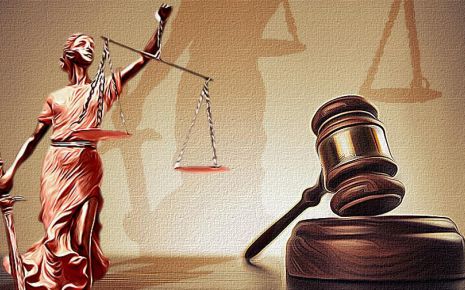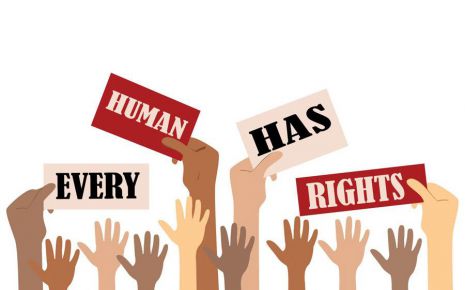Dani Rodrick's Globalisation Trilemma
Dani Rodrick is an eminent international economist working in the field of
globalization and international trade. He wrote a book called Straight Talk on
Trade where he discussed in length nations, globalizations, trade and the world
economy as a whole. He attempted to answer several questions like:
He wrote about the tensions that occur between national democracy and global markets wherein the States have to choose between the three options ie restrict democracy to reduce international transaction costs; adopt democracy in such a way that national sovereignty is lost, or; restrict globalisation to have democracy. To sum up, Rodrick writes that the Globalisation Trilemma is that it is impossible to have hyper-globalisation, democracy and national sovereignty all at once.
Globalisation means the flow of goods and services across the nation's sovereign boundaries making the world more of an interconnected and interdependent place to trade, invest and live in. Globalisation has definitely bought the nations closer to each other but also closed the space of breathing their own's sovereignty and democratic principles.
Hyper-globalisation is a global market that is as integrated as a national market is. It means a world economy where national borders are not associated with any transaction costs on international trade and finance.1 I have further discussed the inter-relationship of globalisation with sovereignty and democracy.
Meaning, if a State closes its boundaries and upholds only its sovereignty then it shall fail to survive alone because of the advancement of technology and interdependence of other resources. And on the hand, if a State welcomes only globalisation with open arms, forgetting about its sovereignty then it shall fail to control its autonomy and its full dependence on others shall push it back in the competition driver market. Both together are only possible in a world of "freely floating exchange rates." 2
Whether the policy of the State shall contain globalisation features or not becomes the decision of the States. Any decision shall be taken keeping in mind the democratic ideologies that are followed by them. In simple terms, it means that democracy and globalisation can very well harmoniously co-exist. This is very well evident in the case of India, being a democratic nation and also a globalised nation.
The only problem that can occur in their co-existence is to what extent a State would go to change its policies to adopt globalisation regulations. If any drastic changes are made then that would affect the democratic principles, harming the will and welfare of the people. Therefore, a balanced inculcation of globalisation principles is required to maintain democracy.
Professor Rodrick Suggested Three Possible Responses To This Challenge:
To conclude, the ultimate paradox of globalisation is that a system that moves in this direction may look like it is retreating from economic globalisation, but will provide a much more healthy foundation for a global economy.3 A balanced integration of all the three, globalisation, sovereignty and democracy shall go a long way toward a prosperous world. A better-managed will be better globalisation.
End Notes:
- Whether democracy, sovereignty and globalisation are compatible?
- Whether the possibility of the combination of all three exist?
- How the combination of all three is putting a constraint on the world economy?
He wrote about the tensions that occur between national democracy and global markets wherein the States have to choose between the three options ie restrict democracy to reduce international transaction costs; adopt democracy in such a way that national sovereignty is lost, or; restrict globalisation to have democracy. To sum up, Rodrick writes that the Globalisation Trilemma is that it is impossible to have hyper-globalisation, democracy and national sovereignty all at once.
Globalisation means the flow of goods and services across the nation's sovereign boundaries making the world more of an interconnected and interdependent place to trade, invest and live in. Globalisation has definitely bought the nations closer to each other but also closed the space of breathing their own's sovereignty and democratic principles.
Hyper-globalisation is a global market that is as integrated as a national market is. It means a world economy where national borders are not associated with any transaction costs on international trade and finance.1 I have further discussed the inter-relationship of globalisation with sovereignty and democracy.
Globalisation And Sovereignty:
Both terms mean the opposite of each other. To elaborate, sovereignty means to have an independent and autonomous State with no interference from any other States and Globalisation means opening the doors of State boundaries to welcome the outputs of other States. Both cannot survive together if taken in a strict sense. But both are needed in a balanced manner in this transformative century. If one of them is applied higher than the other then it can negatively affect the nation.Meaning, if a State closes its boundaries and upholds only its sovereignty then it shall fail to survive alone because of the advancement of technology and interdependence of other resources. And on the hand, if a State welcomes only globalisation with open arms, forgetting about its sovereignty then it shall fail to control its autonomy and its full dependence on others shall push it back in the competition driver market. Both together are only possible in a world of "freely floating exchange rates." 2
Globalization And Democracy:
Democracy means the power of people. The power to govern the State comes from the people and is for the people and of the people. There are rights and duties for the citizens, freedom of participation, free and fair elections, rule of law, freedom to form unions, peaceful assembly, freedom of speech and expression, etc. The policies that are developed are for the welfare of all the people. The objective is inclusive growth, leaving no one behind.Whether the policy of the State shall contain globalisation features or not becomes the decision of the States. Any decision shall be taken keeping in mind the democratic ideologies that are followed by them. In simple terms, it means that democracy and globalisation can very well harmoniously co-exist. This is very well evident in the case of India, being a democratic nation and also a globalised nation.
The only problem that can occur in their co-existence is to what extent a State would go to change its policies to adopt globalisation regulations. If any drastic changes are made then that would affect the democratic principles, harming the will and welfare of the people. Therefore, a balanced inculcation of globalisation principles is required to maintain democracy.
Professor Rodrick Suggested Three Possible Responses To This Challenge:
- He suggested ignoring the problems that arise due to holding on to democratic principles and sovereignty. He asks to accept globalisation fully and face the resulting consequences.
- He suggested framing such strict and similar rules on all that harmonise trade. He asks to ignore all the negative effects that these rules bring to the States.
- He suggested restricting globalisation at all costs even if that means losing on trading with other states.
To conclude, the ultimate paradox of globalisation is that a system that moves in this direction may look like it is retreating from economic globalisation, but will provide a much more healthy foundation for a global economy.3 A balanced integration of all the three, globalisation, sovereignty and democracy shall go a long way toward a prosperous world. A better-managed will be better globalisation.
End Notes:
- Dani Rodrik, 'Globalisation Dilemmas and the Way Out' (2012) 47 IJIR 404.
- Arthur A. Stein, 'The Great Trilemma: Are Globalisation, Democracy and Sovereignty Compatible' (2016) 8 IT 297.
- Rodriks (n1).
Law Article in India
Legal Question & Answers
Lawyers in India - Search By City
LawArticles
How To File For Mutual Divorce In Delhi

How To File For Mutual Divorce In Delhi Mutual Consent Divorce is the Simplest Way to Obtain a D...
Increased Age For Girls Marriage

It is hoped that the Prohibition of Child Marriage (Amendment) Bill, 2021, which intends to inc...
Facade of Social Media

One may very easily get absorbed in the lives of others as one scrolls through a Facebook news ...
Section 482 CrPc - Quashing Of FIR: Guid...

The Inherent power under Section 482 in The Code Of Criminal Procedure, 1973 (37th Chapter of t...
The Uniform Civil Code (UCC) in India: A...

The Uniform Civil Code (UCC) is a concept that proposes the unification of personal laws across...
Role Of Artificial Intelligence In Legal...

Artificial intelligence (AI) is revolutionizing various sectors of the economy, and the legal i...








Please Drop Your Comments